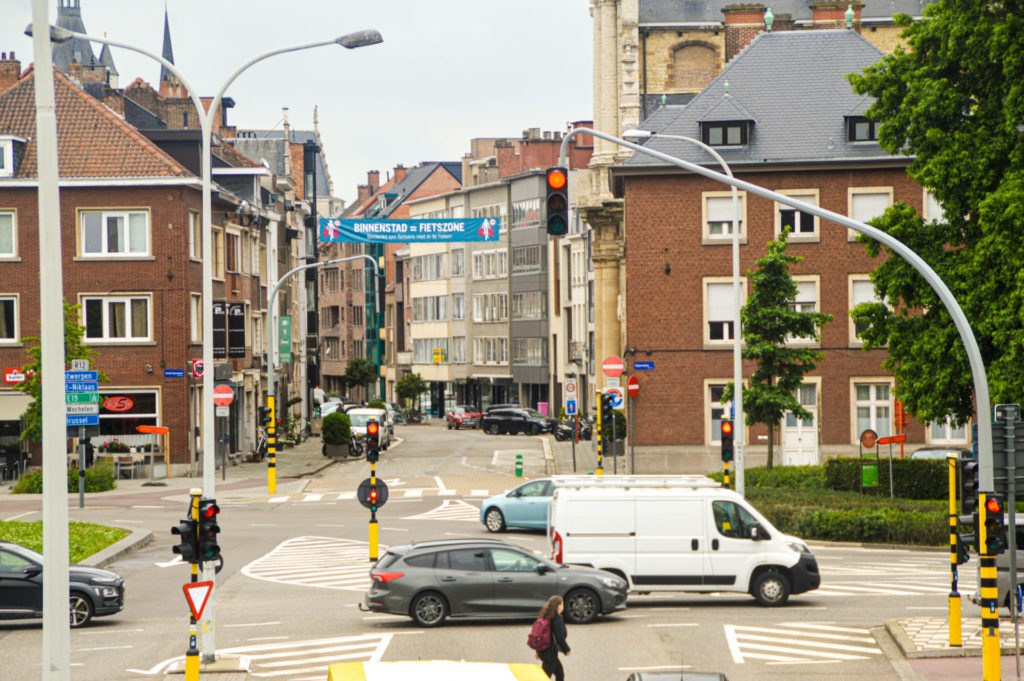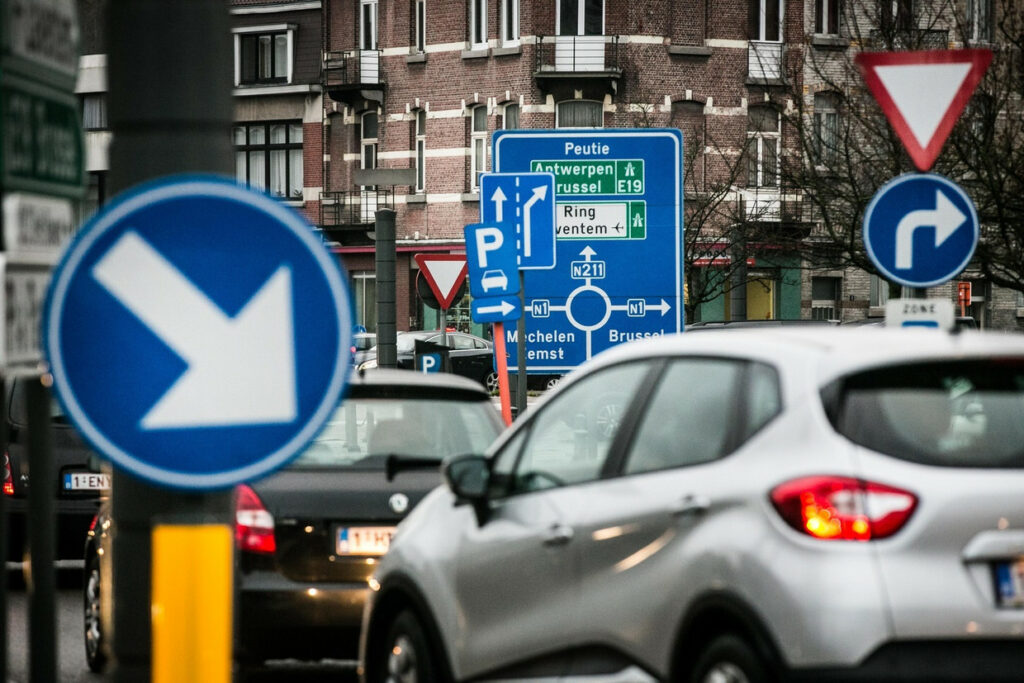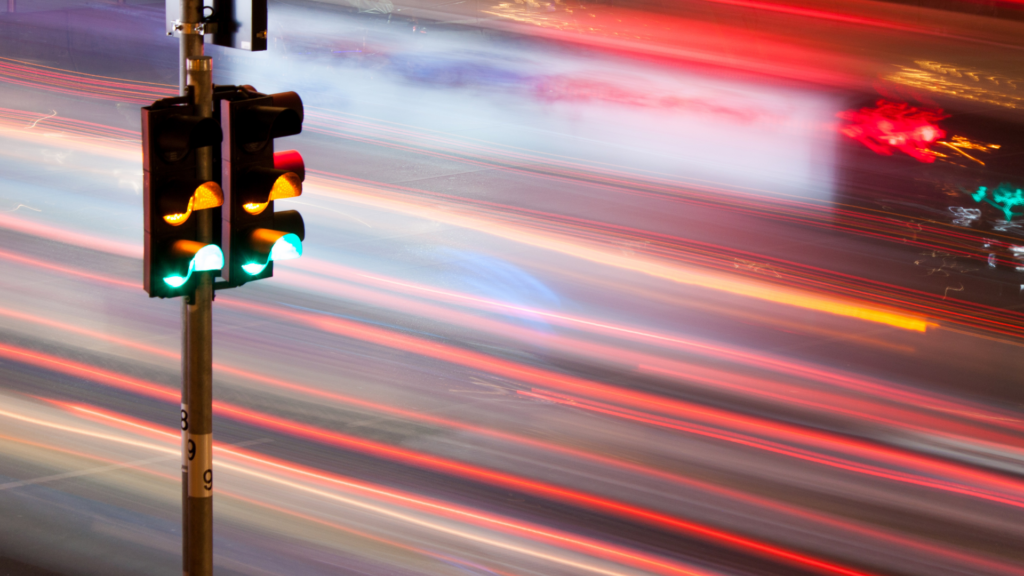Compared to other EU citizens, drivers in Belgium appear to be markedly worse at following traffic rules, an international online survey shows. Respecting the speed limit is a particular problem that many motorists fail to do.
The ESRA (E-Survey of Road users' Attitudes) gauges how often road users committed traffic offences in the previous month. More than other European citizens, Belgians reported that they were guilty of speeding, using their phones behind the wheel, or drink driving.
Traffic offences are ranked on four degrees, Stef Willems of the Vias road safety institute told Het Laatste Nieuws. "A first-degree offence means it posed a low risk to other road users. However a fourth-degree offence puts yourself and others in immediate and grave danger."
Degrees of punishment
The punishment for a traffic offence is determined by the degree of the offence: for a first-degree offence, the punishment is a €58 fine. For a second- and third-degree offence, those fines are €116 and €174 respectively. (Each time, an administrative cost of €10.02 is added.)
For fourth-degree offences, fines range from €220 to €2,750 and the driver is required to appear before the police court, which will likely impose a driving ban, Willems said. "This can also be the case for a second or third-degree offence if you already committed previous traffic offences."
Here are the top 10 offences in Belgium.
1. Driving 1–10 km/h too fast (4,022,285 offences)
With more than four million fixes in Belgium, minor speeding offences are where drivers most often go wrong. In this case, the fine is €53.
2. Driving 11–20 km/h too fast (1,626,825 offences)
Fines are the same as when driving 21 to 30 km/h too fast but with much less risk of a driving ban.
3. Standing still or parking (455,648 offences)
In most cases, drivers who park or stand still incorrectly (for example, in the opposite direction of travel) or too long get a €58 fine. But if parked on a footpath or reserved space for someone with a disability, that is considered a second-degree offence – with a €116 fine.
4. Driving 21 to 30 km/h too fast (368,237 offences)
Driving between 21 and 30 km/h too fast in a built-up area, zone 30, school zone or residential area incurs a fixed fine of €53. This goes up €11 for every additional kilometre above the 10 km/h speeding. Motorists also risk a ban or having their licence revoked.
On other roads, €6 is added for every additional kilometre above 10 km/h. However, drivers then no longer run the risk of a driving ban or having their licence revoked.
5. Prohibition signs (223,707 offences)
Remarkably often, drivers mistake or ignore prohibition signs (such as prohibited access for cyclists or signs indicating that a turn in a certain direction is not allowed). This can lead to a €58 fine. Ignoring the red round prohibition sign with the horizontal white line will cost €174.

Traffic in Mechelen. Credit: Jilke Tielemans/The Brussels Times
6. Mobile phone use (108,734 offences)
Using your mobile phone while driving has recently become a third-degree offence, bringing up the fine to €174 (+ €10.02 administrative fee). Drivers are only allowed to use a device with a screen if it is in the appropriate holder.
They must also always be in control of their vehicle, meaning that drivers can still be fined if they look away from the road too long (even it is to enter an address into their GPS).
7. Technical requirements (93,718 offences)
This includes broken lights or worn tyres. Usually, these are first-degree offences, meaning they will cost drivers €58 in addition to that administrative fee of €10.02.
8. Driving 31 to 40 km/h too fast (88,468 offences)
People driving this much too fast in a built-up area, zone 30, school zone or residential area will appear before the police court and receive a driving ban of between eight days and five years. They could also lose their driving licence and be fined up to €4,000.
On other roads, the fine for driving between 31 and 40 km/h too fast is €53, plus €6 for each additional kilometre above 10 km/h. In practice, this means that if someone drives 35 km/h too fast, they will pay €53 + (25 x €6) = €203. On top of that, they risk a driving ban or temporarily having their licence revoked.
9. Traffic lights (84,487 offences)
Offences in this category have to do with tricoloured lights, clearance arrows, and flashing lights. "Driving through a red light is a serious offence, of the third degree. So then you pay €174. In some circumstances, it can incur a ban. Driving through an orange can cost you €116."
10. General rules (80,054 offences)
Relating to all road users, this very broad category includes rules about cycling in groups, opening car doors or your position on the road, for example. "That category covers so many different offences, so it is not possible to summarise to which degree those offences belong."


